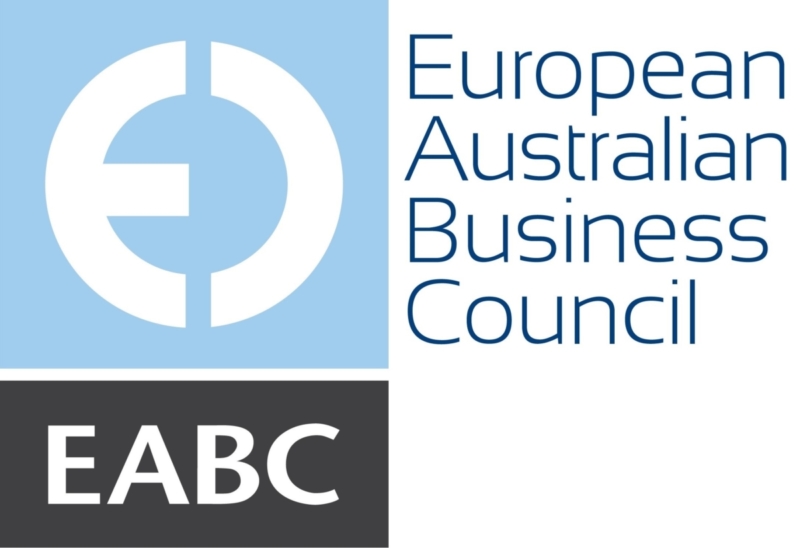Update from the European Australian Business Council (EABC)
 EABC Business Mission to Europe 2023 – Stockholm Visit
EABC Business Mission to Europe 2023 – Stockholm Visit
Each year, the EABC undertakes a high-level Business Mission to Europe as an initiative to strengthen bilateral relationships with European governments, institutions, business leaders, peak industry groups and policy and research organisations. This year our delegation travelled to Berlin, Brussels, Stockholm, Paris and London, in June and July with 25 senior business and organisational leaders from a diverse range of industry sectors, and leading research-intensive universities.
In Stockholm the delegation was delighted to be joined by members of the SACC Board for meetings with Trade Minister Johan Forssell; Jacob Wallenberg, Marcus Wallenberg and Investor AB colleagues; Hans Wallmark MP, Swedish Defence Commission Chair; Dr Anna Breman, Sveriges Riksbank First Deputy Governor; Henrik Isakson, Confederation of Swedish Enterprise Director for Trade Policy; the leaders of Ericsson, H2 Green Steel, LKAB, Northvolt, Saab AB, Scania Group, SSAB and Talga Group; among others.
Delegates gained insights into the political, economic and regulatory outlook for Sweden and for Europe (from a Swedish perspective); geopolitics and trade policy, regional security and defence industry; Sweden’s green transition, with a focus on clean energy, sustainable mining and the decarbonisation of major industries; industrial policy and the central role of innovation, science and research for remaining competitive. Please find copies of some of the presentations from the Stockholm programme.
Link: Presentations Password: businessmission23
EU-Australia FTA Negotiations – State of Play
The 15th round of negotiations was held in Brussels between 24 and 28 April 2023 (official reports available here and here). The round was very constructive, with 11 chapters and sub-chapters and 5 annexes provisionally closed in a week – a feat when one considers only 13 chapters, sub-chapters and annexes had been provisionally closed prior to this round.
The following issues were provisionally concluded:
Technical Barriers to Trade including four annexes on Conformity Assessment, Motor Vehicles and Parts, Cosmetics and Complementary Medicines. The negotiators agreed to apply a dispute settlement mechanism to the whole chapter and its annexes, along with its application to the Australian State and Territories. Of note, conformity assessments will be facilitated for certain sectors. Most importantly, Australia has provisionally agreed to accept EU type-approval certificates for a broad category of vehicles. As a result, approvals in the EU will not need further certification before entering the Australian market, where the technical requirements comply.
Intellectual Property Rights (IPR), except Geographical Indications (GIs) – Whilst the IPR chapter was provisionally closed, including general provisions on the recognition of the interests of Australian First Nations peoples, GIs remain under discussion – conflicts with prior uses for several names persist.
Rules of Origin – Negotiators successfully provisionally concluded the Rules of Origin chapter, which will establish simple, low-cost, self-certification procedures for traders to claim origin.
Digital Trade (data flows across borders, privacy, scope and source code), Sanitary and Phytosanitary Measures (including a dispute settlement mechanism), Sustainable Food Systems, Financial Services, Cross Border Trade in Services, Trade Remedies (except for issues linked to the final goods market access outcome), Anti-Fraud, Rules of Procedures of the Trade Committee and The Preamble.
Government Procurement – Negotiators provisionally closed this chapter during intersessionals ahead of the 15th round. Australia has agreed to match its most ambitious treaty-level commitments for EU suppliers. EU companies would enjoy the legal right to tender for an additional EUR 9.9 (AUD 15) billion annually of services contracts across the Australian Government and all state and territory governments. This adds to the following 13 chapters, sub-chapters and annexes that had already been provisionally concluded in earlier rounds: Small and Medium-sized Enterprises, Customs and Trade Facilitation, Capital Movement, Delivery Services, Professional Services, Telecommunication Services, Maritime Services, Domestic
Regulation, Good Regulatory Practice, Transparency, Mutual Administrative Assistance in Customs Matters, Government Procurement, and Competition.
Following the 15th round, the following issues remained outstanding:
Trade in Goods – The Trade in Goods text was provisionally agreed, except for those issues linked to the final goods market access package. The sectors qualified as sensitive for the EU (beef, sheep meat, sugar and rice) had not been discussed during the 15th round.
Services and Investment – Whilst the sub-chapters on Financial Services and Cross Border Trade in Services were provisionally closed, the revised market access package was further reviewed. Of note, the temporary movement of natural persons, of key importance to businesses, is still under discussion. The EU cannot offer reciprocity to Australia as migration is not a competence of the EU but a competence of Member States. Australia is exploring with the EU mechanisms to enhance mobility. It should be noted that Australia is currently revising its migration laws and that Clare O’Neil, Australia’s Minister for Home Affairs, is considering scratching the labour market test in the future.
Subsidies and State-owned Enterprises – The chapters are well advanced. Finalisation is subject to technical matters being confirmed.
Trade and Sustainable Development – Australia rejected inserting a non-regression clause in the trade and sustainable development chapter – key provision for the EU to ensure that their trading partner agrees not to lower labour standards in the future to attract investment.
Energy and resources – Solid progress was achieved on outstanding issues including Australia First Nations peoples’ interests relating to energy and resources, third party access to energy transport infrastructure, renewable energy, and raw materials cooperation. Issues remain on energy and resources pricing issues.
What are the remaining blockages?
Since the 15th round, European Commission Executive Vice-President Valdis Dombrovskis and Australian Trade Minister Don Farrell met early June in Brussels to iron out the politically sensitive issues. The EU made an offer to Australia on the market access of sensitive products which Australia could not agree too as the offer was not commercially meaningful.
Australia and the EU have since held another two days of talks on 10 and 11 July 2023 in Brussels. However, the EU did not offer to open its market at a level that was considered commercially meaningful for Australian agricultural products – notably for beef and sheep meat.
- Australia stated that the EU could not expect Australia to be satisfied with the sort of deal it struck with New Zealand. While the new offer to Australia is marginally better than the deal with New Zealand on beef meat, the conditionality elements included would not meaningfully improve conditions, and furthermore, the offer on sheep meat is significantly lower than that offered to New Zealand.
- Minister Farrell said he was still optimistic of making progress. Nonetheless, he warned Australia is ready to walk away should a deal not make the light of day before the end of the year.
- Without a commitment to an improved market access offer, Australia is reticent to offer more to the EU in the outstanding areas including temporary mobility of persons, energy (hydrogen/ critical raw materials pricing issues) and luxury cat tax. Additional areas include GIs (arrangements for four sensitive products still outstanding) and sanitary and phytosanitary measures (SPS).
- During the last round of negotiations, the parties provisionally closed the Trade and Sustainable Development Chapter – no clarity however on what has been agreed. It has been reported that the outcome is broadly consistent with the EU-New-Zealand trade agreement, and in some respects go beyond this (e.g. more comprehensive environmental services and goods lists). The EU side is said to be happy that the deal would ensure a level playing field for EU businesses.
Next steps
- Market access into the EU for Australian agricultural products considered sensitive by the EU is the decisive factor for a deal to be done. Australia is ready to walk away should the deal not be good enough to justify signing the FTA. For Australia to be able to ‘sell’ the deal, which imposes significant burden on domestic businesses around GIs in particular, there will need to be ‘commercially meaningful’ improvement of market access for other agricultural products.
- Negotiations resumed on 31 August. Executive Vice-President Dombrovskis spoke with Minister Farrell over videoconference to hear from the Australian side on their internal consultations, which Minister Farrell indicated that he had to carry out after the conclusion of the last ministerial discussions in mid-July.
- The gap between the expectations now needs to be bridged for the negotiations to progress further.
- The time for a deal is now whilst there is a positive momentum ahead of the EU elections.
eabc.com.au


